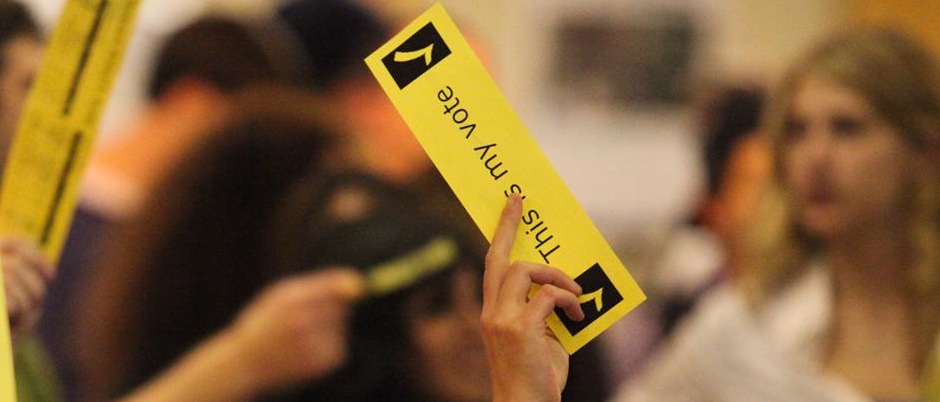On October 18th, the National Assembly of Quebec passed Bill 62, requiring people to uncover their faces when receiving or providing any public service. Although the bill has been defended as a way to maintain safety and order in public spaces, its reception was highly controversial, with religious rights activists blaming the Quebec government for discriminating against the Muslim community.
The bill does mention the possible implementation of religious accommodation requests, but no guidelines on this have been issued, making room for confusion around the interpretation and application of the bill. The constitutionality of the bill itself has already been contested, leading many to believe it will be defeated in court because of plausibly violating the Quebec and Canadian Human Rights and Freedom Charters. Some critics have highlighted the fact that the legislation is drafted in a way that conceals the real intentions of its authors, and “serves to play off of nationalism and exploit ignorance for the sake of political gains”.
The politicization of secular law could be the beginning of a new stance taken by the Quebec government regarding religious expression in public spaces. Canada exemplifies a model of acceptance and inclusiveness for the international community. This bill highly conflicts with the values it claims to defend.
The French Case
To illustrate the dangers of such a shift, looking at France helps us see how the initial desire of state neutrality has shifted the public opinion on religion expression from acceptance to aggressive rejection.
French secularism has turned into a neutralizing weapon by dictating the behaviours of the citizens in public space.
The understanding of secularism in France has radically changed since it was first introduced in the French code in 1905. Originally conceptualized as a guarantee of the state’s equal treatment of citizens regardless of their beliefs, French secularism has turned into a neutralizing weapon by dictating the behaviours of the citizens in public space. The change is paradoxical: peace is no longer created through the mutual respect of our differences. Instead, it seeks to erase those differences. This new trend in French politics has paved way for new kinds of debate, to the point where ever the provision of Kosher or Halal lunch options at school cafeterias is seen as a direct threat to the neutrality of public services.
It no longer makes sense to argue that this extreme form of state secularism guarantees the maintenance of public order. It is no longer logical to assume that opposition to any expression of faith makes us equal individuals, because it stigmatizes the portion of French citizens who still consider themselves religious. French secularism has become aggressive, and creates more conflicts today than ever among individuals in the public sphere.
The French case exemplifies a secular model that does not reflect Canadian or Quebec values. It gives us an idea of how extreme arguments of state neutrality can be catalyses for discriminatory behaviours, and prevents us from learning to embrace diversity. The fear is that by artificially shaping an ideal of a citizen in public space, we condition ourselves and the generations to come into having negative reactions towards what is “different”.
State neutrality can be positive if we understand its original aim; However, the way politicians have started introducing legal arguments as a way to justify their positions is precisely what should be tackled.
A Faux-Feminist Argument
Among the many ways secularism has been politicized, a new wave argument has emerged contending that burqa bans are a way to free women from religious oppression. Such justification clearly indicates the hypocrisy that lies in these claims: the feminist trap’s of disguising a conservative agenda that is in no way pushing for the integration of women into society.
Dictating the expression of women’s identity in public is not progressive. Preventing covered women from enjoying public services is not empowering. If anything, it closes doors, discriminates and restricts access to public services for a specific group of women.
Let the female population understand themselves as integral parts of the public life, regardless of their religion.
The feminist’s claim predicates on the notion that such policies could damage the progress already made in terms of rights. Our laws should instead focus on encouraging women’s self-definition through policies focused on education and workplace inequality. Let the female population understand themselves as integral parts of the public life, regardless of their religion. Let them choose what is comfortable for them in order to establish their roles in and out of the private sphere. Closing doors to the religious portion of our society will only build a stigmatizing atmosphere that is anything but inclusive.
New-Wave feminist values which seek the inclusion of all women can thus not be used as way to defend burqa bans. If the state’s aim is to empower, it should unite, and not divide.
So, Why Does it Matter for Quebec?
The debate surrounding Bill 62 is proof that there is an inherent scepticism within Canadian society to follow the French model. The fear is that extreme forms of secularism could turn into discriminatory instruments used to achieve political goals. Whether it claims to be ensuring social order or protecting women from religious pressures, the bill clashes with secularism’s central aim. An effective rule of law relies on a legislature that treats its citizens as equals, and does not seek to exclude individuals from the public space.
Understanding the goals behind the politicization of secularism is the first step in combatting an unjust instrumentalization of our country’s core values. We should re-evaluate what we truly want as members of a diverse population, which has until now thrived by embracing cultural and religious heterogeneity.
The views expressed in this opinion piece are the author’s own and do not necessarily represent those of The Bull & Bear.









1 Comment